Filter by
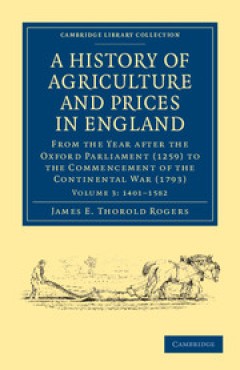
A History of Agriculture and Prices in England
Since early times, agriculture has been pivotal to England's economy. This is the fifth in a magisterial seven-volume, eight-piece compilation by the economist James E. Thorold Rogers (1823–90), which represents the most complete record of produce costs in England between the thirteenth and eighteenth centuries. Drawing on a variety of sources including college archives and the Public Record …
- Edition
- -
- ISBN/ISSN
- 9781139094818
- Collation
- -
- Series Title
- Cambridge Library Collection - British and Irish History, General
- Call Number
- -
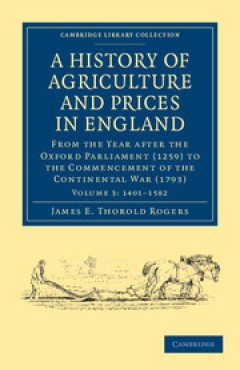
A History of Agriculture and Prices in England
Since early times, agriculture has been pivotal to England's economy. This is the fourth in a magisterial seven-volume, eight-piece compilation by the economist James E. Thorold Rogers (1823–90), which represents the most complete record of produce costs in England between the thirteenth and eighteenth centuries. Drawing on a variety of sources including college archives and the Public Record…
- Edition
- -
- ISBN/ISSN
- 9781139094801
- Collation
- -
- Series Title
- Cambridge Library Collection - British and Irish History, General
- Call Number
- -
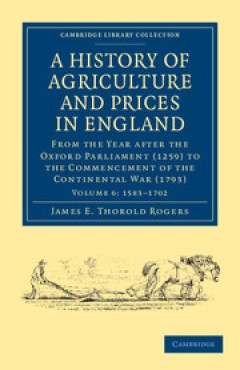
A History of Agriculture and Prices in England
Since early times, agriculture has been pivotal to England's economy. This is the seventh in a magisterial seven-volume, eight-piece compilation by the economist James E. Thorold Rogers (1823–90), which represents the most complete record of produce costs in England between the thirteenth and eighteenth centuries. Drawing on a variety of sources including college archives and the Public Recor…
- Edition
- Arthur G. L. Rogers
- ISBN/ISSN
- 9781139094832
- Collation
- -
- Series Title
- -
- Call Number
- -
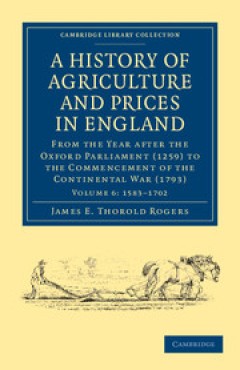
A History of Agriculture and Prices in England
Since early times, agriculture has been pivotal to England's economy. This is the sixth in a magisterial seven-volume, eight-piece compilation by the economist James E. Thorold Rogers (1823–90), which represents the most complete record of produce costs in England between the thirteenth and eighteenth centuries. Drawing on a variety of sources including college archives and the Public Record …
- Edition
- -
- ISBN/ISSN
- 9781139094825
- Collation
- -
- Series Title
- Cambridge Library Collection - British and Irish History, General
- Call Number
- -
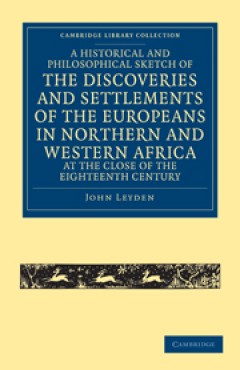
A Historical and Philosophical Sketch of the Discoveries and Settlements of t…
lthough he had never set foot in Africa, Scottish poet and linguist John Leyden (1775–1811) decided to publish in 1799 this compilation on 'discoveries and settlements' there, drawing from the published works of explorers. His aim was 'to exhibit the progress of discoveries at this period in North and West Africa', giving descriptions of places such as Guinea, the Gold Coast, and Sierra Leone…
- Edition
- -
- ISBN/ISSN
- 9781139058759
- Collation
- -
- Series Title
- Cambridge Library Collection - African Studies
- Call Number
- -

A Guide to Marx's 'Capital' Vols I-III
This book provides a comprehensive guide to all three volumes of Karl Marx's 'Capital', with advice on further reading and points for further discussion. Recognizing the contemporary relevance of 'Capital' in the midst of the current financial crisis, Kenneth Smith has produced an essential guide to Marx's ideas, particularly on the subject of the circulation of money-capital. This guide unique…
- Edition
- -
- ISBN/ISSN
- 9780857285775
- Collation
- -
- Series Title
- Key Issues in Modern Sociology
- Call Number
- -

A Great Deal of Ruin Financial Crises since 1929
A Great Deal of Ruin provides an accessible introduction to the enduring problem of financial crises. Illustrated with historical analysis, case studies, and clear economic concepts, this book explains in three parts what financial crises are, how they are caused and what we can learn from them. It begins with a taxonomy of crises and a list of factors that increase the risk for countries exper…
- Edition
- -
- ISBN/ISSN
- 9781108608589
- Collation
- -
- Series Title
- -
- Call Number
- -
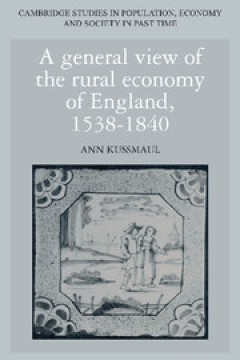
A General View of the Rural Economy of England, 1538–1840
In rural England prior to the Industrial Revolution people generally married when they were not busy with work. Parish registers of marriage therefore form an important and innovative source for the study of economic change in this period. Dr Kussmaul employs marriage dates to identify three main patterns of work and risk (arable, pastoral and rural industrial) and more importantly to show the …
- Edition
- -
- ISBN/ISSN
- 9780511560675
- Collation
- -
- Series Title
- Cambridge Studies in Population, Economy and Society in Past Time
- Call Number
- -
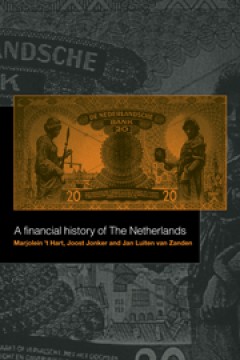
A Financial History of the Netherlands
This book brings together the results of fresh scholarly research to present a unique overview of the financial history of the Netherlands from the sixteenth century onwards. The Netherlands has always occupied a role in international finance way out of proportion with its geographical size. Since the eighteenth century, the country has been one of the largest exporters of capital in the world.…
- Edition
- -
- ISBN/ISSN
- 9780511559754
- Collation
- -
- Series Title
- -
- Call Number
- -
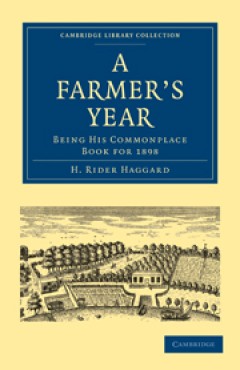
A Farmer's Year
H. Rider Haggard (1856–1925) is best known as the successful writer of adventure stories with exotic backgrounds such as King Solomon's Mines and She. However, he also served on a number of royal commissions, and in managing his wife's Norfolk estate became a recognised expert on agricultural matters. A Farmer's Year is his diary for 1898, recounting the work of the farm, month by month, toge…
- Edition
- -
- ISBN/ISSN
- 9780511792281
- Collation
- -
- Series Title
- Cambridge Library Collection - British and Irish History, 19th Century
- Call Number
- -
 Computer Science, Information & General Works
Computer Science, Information & General Works  Philosophy & Psychology
Philosophy & Psychology  Religion
Religion  Social Sciences
Social Sciences  Language
Language  Pure Science
Pure Science  Applied Sciences
Applied Sciences  Art & Recreation
Art & Recreation  Literature
Literature  History & Geography
History & Geography